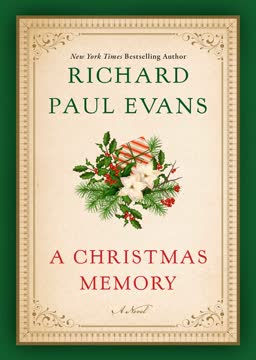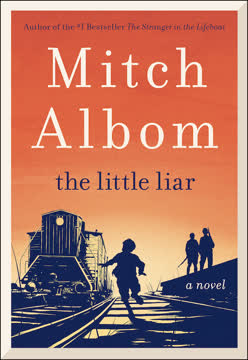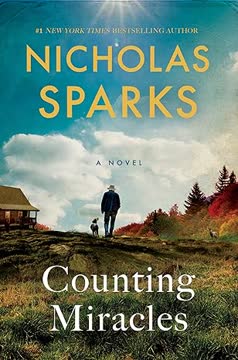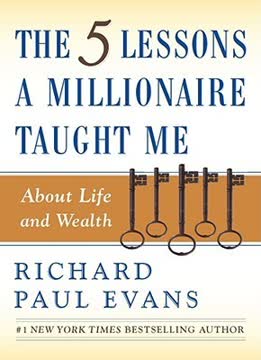Plot Summary
War's Shadow and Family Fracture
In the turbulent summer of 1967, young Ricky's world is already fragile. The Vietnam War rages, and his beloved older brother Mark is deployed, leaving a void at home. Ricky, an awkward eight-year-old with Tourette's, feels the tension between his parents and the ever-present fear for Mark's safety. The family's sense of security is eroded by the war's distant violence and the growing cracks in their own relationships. Mark's letters from Vietnam become less frequent and more strained, and the family clings to hope, even as the world outside seems to burn. The emotional distance between Ricky and his parents grows, setting the stage for a year of profound loss and transformation.
The Messenger's Knock
On a sweltering August day, the family's fragile hope is shattered by the arrival of an army officer. The news of Mark's death in Vietnam devastates Ricky and his mother, plunging them into a grief that feels both surreal and all-consuming. The funeral is a blur of awkward condolences and unresolved anger, with family members struggling to find meaning in a senseless loss. Ricky's father becomes more withdrawn, and his mother's sorrow deepens. The family's foundation, already weakened, begins to crumble under the weight of grief, leaving Ricky feeling more alone than ever before.
Grief's Unraveling
In the aftermath of Mark's death, the Evans household descends into chaos. Ricky's mother is consumed by sorrow, and his father's presence becomes more ghostly than real. Financial troubles and constant arguments lead to the decision to leave California for Utah, where Ricky's maternal relatives offer a place to stay. Ricky's Tourette's syndrome emerges, misunderstood and dismissed by his mother. The move is not just a change of scenery but a forced exile from everything familiar. The family's journey is marked by silence, discomfort, and a sense of impending collapse, as Ricky tries to make sense of a world that no longer feels safe.
Uprooted to Utah
The Evans family's arrival in Utah is marked by loss and disorientation. Their new home, Ricky's late grandmother's house, is a far cry from their California life—old, musty, and filled with memories that aren't his. The neighborhood is unfamiliar and unwelcoming, and the family's possessions are reduced to what fits in a trailer. Ricky explores the property, finding solace in the overgrown orchard and the creek, but the sense of displacement lingers. His parents' relationship deteriorates further, culminating in their separation. Ricky is left to navigate this new world with little guidance, his loneliness deepening as winter approaches.
A Lonely New World
With his father gone and his mother withdrawn by migraines and depression, Ricky is left to his own devices. School is postponed, and days blur together in a haze of solitude. He finds small joys in building a robot from junk and exploring the property, but the absence of friends and the coldness of his new environment weigh heavily. The only bright spot is the dog next door, Beau, whose playful presence at the fence offers Ricky a glimmer of connection. The world feels both vast and empty, and Ricky's longing for companionship grows more acute.
Beau at the Fence
Ricky's first real friend in Utah is Beau, the neighbor's dog. Their bond forms through the slats of the fence, with Beau's eager licks providing comfort to Ricky's aching heart. The dog's owner, Mr. Foster, is a mysterious figure—an elderly Black man who keeps to himself. Ricky's curiosity about Mr. Foster grows, even as he worries about being caught for cutting a hole in the fence to better reach Beau. The simple act of befriending a dog becomes a lifeline, offering Ricky a sense of belonging in a place where he feels invisible.
Meeting Mr. Foster
After a brutal encounter with school bullies, Ricky is rescued by Mr. Foster, who wields his cane with authority and kindness. Invited into Mr. Foster's warm, music-filled home, Ricky discovers a world of books, baking, and gentle wisdom. Mr. Foster shares stories of his own losses and introduces Ricky to the joys of reading, starting with The Hobbit. Their friendship deepens over cookies and cocoa, and Ricky finds in Mr. Foster the guidance and acceptance missing from his own family. The old man's presence becomes a source of stability and hope, teaching Ricky about strength, kindness, and the power of stories.
Schoolyard Cruelty
School in Utah is a daily ordeal for Ricky. He is mocked for his "flood" pants, his tics, and his outsider status. Mrs. Covey, his teacher, is harsh and unsympathetic, publicly shaming him for small mistakes and crushing his spirit. The cruelty of classmates and the indifference of adults reinforce Ricky's sense of isolation. Yet, small acts of kindness—a loaned pencil, a new friend named Jed—offer brief respite. Ricky's resilience is tested, but the support of Mr. Foster and Beau helps him endure, teaching him that even in hostile environments, friendship can be found.
Cookies and Kindness
Ricky's visits to Mr. Foster's house become a cherished routine. Together, they bake cookies, share stories, and care for Beau. Mr. Foster offers Ricky small jobs—walking Beau, shoveling snow, returning bottles for deposit—giving him a sense of purpose and independence. Through these simple acts, Ricky learns about generosity, responsibility, and the quiet dignity of work. The warmth of Mr. Foster's kitchen stands in stark contrast to the coldness of Ricky's own home, and the old man's steady presence becomes a balm for Ricky's wounded heart.
Lessons from Loss
Mr. Foster shares with Ricky the story of his own devastating loss—the accidental death of his son, Isaiah, and the subsequent unraveling of his family. He teaches Ricky about the Japanese art of Kintsugi, repairing broken pottery with gold, as a metaphor for healing and finding beauty in scars. Through these lessons, Ricky begins to understand that grief and love are intertwined, and that forgiveness—of oneself and others—is the true alchemy of the heart. Mr. Foster's wisdom helps Ricky process his own pain and see the possibility of hope and renewal.
The Christmas Spirit Tested
As Christmas approaches, Ricky's family struggles to find joy. His mother is absent, his father is distant, and the house remains undecorated. At school, Mrs. Covey's cynicism and cruelty reach a peak when she tells the class that Santa Claus isn't real, shattering the children's innocence. Ricky's faith in magic and goodness is shaken, and he turns to Mr. Foster for comfort. The old man, donning a Santa suit, reminds Ricky that the spirit of giving transcends appearances and that magic exists in kindness and belief. Together, they reclaim a sense of wonder and hope, even in the face of loss.
The Santa Claus Reckoning
The revelation about Santa Claus marks a turning point for Ricky. He confronts his mother, who confirms the truth, deepening his sense of betrayal and abandonment. The loss of childhood illusions compounds the grief of losing his brother and the disintegration of his family. Ricky's dream of a burning Christmas tree symbolizes the destruction of all he once held dear. Yet, through his conversations with Mr. Foster, he learns that belief, love, and kindness endure beyond disappointment. The pain of growing up is tempered by the discovery that some forms of magic—like friendship—are real.
Breaking and Mending
A crisis brings Ricky's father back home when his mother attempts suicide. The family is forced to confront their pain and guilt, leading to moments of raw honesty and forgiveness. Mr. Foster's declining health and eventual revelation of his terminal illness mirror the family's struggles, teaching Ricky that love often means facing loss with courage. Through shared vulnerability, Ricky's parents begin to heal, and the family finds a fragile new unity. The process of mending is slow and imperfect, but the gold in their cracks begins to shine.
A Thanksgiving of Healing
Thanksgiving at Mr. Foster's house becomes a turning point for Ricky and his mother. Surrounded by warmth, good food, and genuine hospitality, they experience a sense of belonging that has been missing for so long. Mr. Foster's stories, southern cooking, and gentle humor create an atmosphere of acceptance and gratitude. The meal is not just a feast but a celebration of survival, resilience, and the power of chosen family. For Ricky, it is a reminder that even in the midst of sorrow, moments of joy and connection are possible.
The Gift of Friendship
As Christmas nears, Mr. Foster's health declines, and he entrusts Beau to Ricky as a final gift. Their friendship, forged through shared stories, baking, and mutual care, becomes a source of strength for both. Ricky learns that true friendship is about presence, loyalty, and the willingness to face hard truths together. Mr. Foster's parting wisdom—that grief is the truest evidence of love—helps Ricky accept the inevitability of loss while cherishing the bonds that remain. The gift of Beau is both a comfort and a responsibility, symbolizing the enduring impact of love.
The Secret of Grief
In their final conversation, Mr. Foster prepares Ricky for his impending death, teaching him that grief is not something to be feared or avoided, but embraced as a testament to love. He explains that life, like the creek behind their houses, is always changing, and that the brevity of beautiful moments makes them precious. Ricky is encouraged to carry forward the lessons of forgiveness, resilience, and hope, knowing that the pain of loss is inseparable from the joy of having loved. Mr. Foster's legacy is not just in the gifts he leaves, but in the wisdom he imparts.
The Last Christmas
Mr. Foster passes away on Christmas Day, leaving Ricky with Beau, cherished memories, and a sense of peace. The old man's death is both a profound loss and a fulfillment of his hope to be reunited with his own family. Ricky's family, though scarred, begins to heal, drawing strength from the lessons learned through their friendship with Mr. Foster. The Christmas that began in sorrow ends with a sense of wholeness, as Ricky understands that love endures beyond death, and that the broken places in their lives can be made beautiful.
Epilogue: The Gold in the Cracks
Years later, Ricky reflects on the enduring impact of his friendship with Mr. Foster. The Kintsugi vase, mended with gold, becomes a symbol of the family's healing and the beauty found in brokenness. Ricky's parents reconcile and remain together until their deaths, and Beau's companionship carries him through adolescence. Inspired by Mr. Foster and his brother, Ricky becomes a writer, sharing stories that connect and heal. The memory of that Christmas, and the wisdom of a kind neighbor, remain a guiding light, reminding him—and us—that love, though fleeting, is the most valuable gift of all.
Characters
Ricky Evans
Ricky is the young narrator whose life is upended by the Vietnam War, the death of his brother, and his family's move to Utah. Struggling with Tourette's syndrome and the pain of loss, Ricky is both vulnerable and resilient. His longing for connection leads him to form a deep bond with Mr. Foster and Beau, the neighbor's dog. Ricky's journey is one of coming-of-age through grief, learning to find hope and meaning in the midst of sorrow. His psychological arc moves from isolation and despair to acceptance, gratitude, and the beginnings of wisdom.
Mr. Booker Foster
Mr. Foster is an elderly Black man, a former Navy cook and baker, who becomes Ricky's unlikely friend and surrogate grandfather. Haunted by the loss of his own son and wife, Mr. Foster channels his grief into kindness, sharing his love of books, baking, and life's hard-earned lessons. He teaches Ricky about forgiveness, resilience, and the beauty of mending what is broken. His psychological depth lies in his ability to transform pain into compassion, and his legacy is the gold he helps others find in their own cracks.
June Evans (Ricky's Mother)
June is a mother overwhelmed by the loss of her eldest son and the collapse of her marriage. Her grief manifests as depression and withdrawal, leaving Ricky emotionally adrift. Despite her struggles, she loves her children deeply and, with time, begins to heal through the support of her family and Mr. Foster. Her journey is one of moving from despair to acceptance, learning to forgive herself and others, and rediscovering the possibility of joy.
Mr. Evans (Ricky's Father)
Ricky's father is a man undone by the death of his son and the unraveling of his marriage. He becomes emotionally and physically absent, unable to process his guilt and grief. His eventual return and reconciliation with his family are hard-won, requiring honesty, vulnerability, and forgiveness. His psychological arc is one of moving from avoidance and self-blame to acceptance and the willingness to try again.
Mark Evans
Mark, Ricky's older brother, is a gentle, book-loving peacemaker whose death in Vietnam is the inciting tragedy of the story. Though physically absent, his memory shapes the family's grief and longing. Mark's influence endures through the books he shared with Ricky and the example he set, serving as a silent guide on Ricky's journey toward healing.
Beau (Gollum)
Beau is Mr. Foster's dog, a small, affectionate companion who becomes Ricky's first friend in Utah. Through Beau, Ricky finds comfort, connection, and a sense of responsibility. Beau's presence is a constant source of joy and a living link between Ricky and Mr. Foster. Inheriting Beau is both a gift and a symbol of the enduring bonds of love.
Mrs. Covey
Mrs. Covey is Ricky's fourth-grade teacher, whose cruelty and cynicism make school a place of fear and humiliation. Her public shaming of Ricky and her revelation about Santa Claus represent the loss of innocence and the indifference of authority. She embodies the obstacles Ricky must overcome to find self-worth and hope.
Jed
Jed is a classmate who, like Ricky, has lost a family member and struggles with sadness. Their friendship is understated but meaningful, offering mutual support in a hostile environment. Jed's presence reminds Ricky that he is not alone in his pain.
Ricky's Aunts
Ricky's aunts provide practical support during times of crisis, though their presence is often overwhelming. They represent the extended family's attempts to help, sometimes clashing with Ricky's father. Their role is both stabilizing and a source of additional tension.
B.J.
B.J. is a schoolmate who smokes and skips class, embodying a different response to hardship. His friendship with Ricky is brief but significant, highlighting the various ways children cope with adversity and the longing for acceptance.
Plot Devices
Grief as a Transformative Force
The novel's central device is the exploration of grief—not as an endpoint, but as a catalyst for transformation. The deaths of Mark and Mr. Foster, the family's disintegration, and the loss of innocence are all refracted through Ricky's eyes. Grief is depicted as both a wound and a source of strength, leading characters to deeper understanding, compassion, and ultimately, healing.
Intergenerational Friendship
The unlikely bond between Ricky and Mr. Foster is a key narrative engine. Their friendship provides Ricky with the guidance, acceptance, and wisdom missing from his family. Through shared activities—baking, reading, caring for Beau—the story illustrates how intergenerational relationships can heal and enrich both parties.
Symbolism of Kintsugi and the Creek
The Japanese art of Kintsugi, repairing pottery with gold, serves as a powerful metaphor for the family's journey. The creek behind the houses symbolizes the passage of time and the inevitability of change. Both motifs reinforce the novel's message that beauty and strength can emerge from brokenness, and that life, though ever-changing, carries us toward hope.
The Christmas Setting
Christmas functions as both backdrop and catalyst, heightening the contrasts between joy and sorrow, abundance and absence. The holiday's rituals—baking, gift-giving, decorating—become opportunities for connection and healing, even as they evoke painful memories. The season's emphasis on hope and renewal underscores the story's central themes.
Child's Perspective and Narrative Voice
Told through Ricky's eyes, the narrative captures the confusion, vulnerability, and resilience of childhood. The use of a child's perspective heightens the emotional impact of events, allowing readers to experience the world's harshness and beauty with fresh intensity. The voice is direct, honest, and often poignant, drawing readers into Ricky's inner world.
Analysis
A Christmas Memory by Richard Paul Evans is a poignant meditation on grief, healing, and the enduring power of human connection. Through the eyes of young Ricky, the novel explores the devastation wrought by war, the unraveling of family, and the loss of innocence. Yet, at its heart, the story is about the redemptive possibilities that emerge from brokenness. The friendship between Ricky and Mr. Foster—two souls marked by loss—demonstrates how compassion, wisdom, and simple acts of kindness can mend even the deepest wounds. The recurring motif of Kintsugi, the art of repairing with gold, encapsulates the novel's central lesson: our scars are not just reminders of pain, but sources of strength and beauty. The Christmas setting amplifies the themes of hope, forgiveness, and renewal, reminding us that even in the darkest winters, love can light the way. Ultimately, the book invites readers to cherish the fleeting moments of joy, to honor the pain of loss as evidence of love, and to believe in the possibility of wholeness after heartbreak.
Last updated:
Review Summary
A Christmas Memory is a deeply emotional and touching story based on the author's childhood experiences. Readers praise the heartwarming tale of friendship between young Richard and his elderly neighbor, Mr. Foster. The book explores themes of loss, grief, and forgiveness, set against the backdrop of 1967. While some found it depressing, most reviewers appreciated the powerful life lessons and inspirational messages. Many readers were moved to tears and consider it a must-read for the holiday season, praising Evans' storytelling ability and the book's impact on their hearts.
Similar Books
Download PDF
Download EPUB
.epub digital book format is ideal for reading ebooks on phones, tablets, and e-readers.








